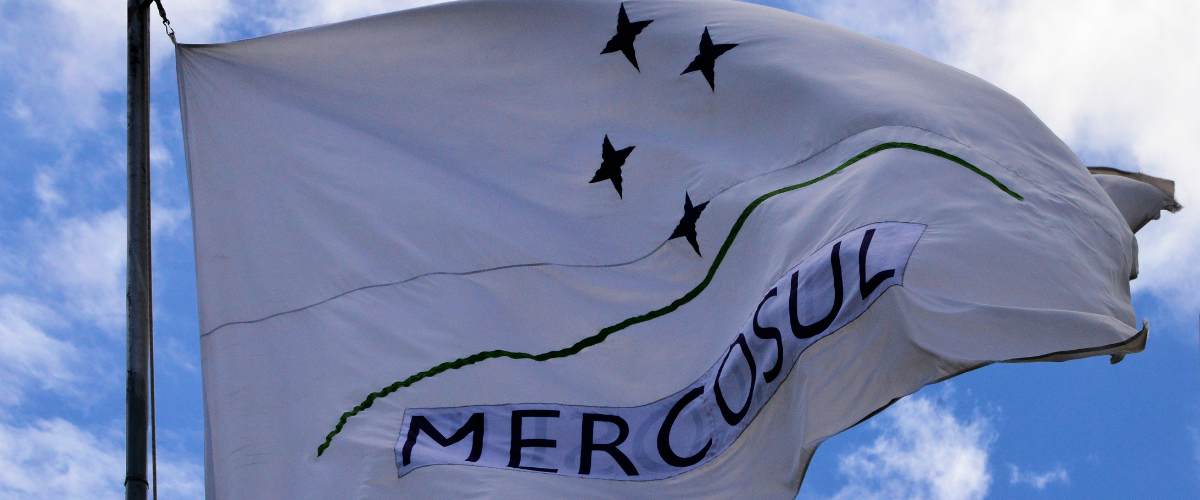
Brazil begins to reassess Mercosur tariff review
Dec, 20, 2023 Posted by Gabriel MalheirosWeek 202346
During the meeting of the Strategic Council of the Foreign Trade Chamber – CEC/Camex, on December 14, the federal government decided to conduct a thorough analysis of the structure of the Common External Tariff (TEC) of Mercosur, approving the creation of a Working Group for this purpose.
At the end of its work, the Working Group will present to the Strategic Council a proposal for technical improvement of the TEC. Once approved, it will be taken to the Mercosur bodies.
“In almost thirty years of the Common External Tariff, distortions and exceptions have accumulated, compromising the economic rationality, transparency, and predictability of foreign trade operations. The task is not easy, but there is clearly room for simplification, a fundamental measure to strengthen the economic integration of our region, which gains renewed impetus with the entry of Bolivia and the signing of a new trade agreement with Singapore,” evaluates Geraldo Alckmin, Vice President and Minister of Development, Industry, Trade, and Services (MDIC).
One of the distortions that the TEC review seeks to address is the so-called inverted tariff escalation, where, in a production chain, inputs have higher rates than the final goods.
This distortion discourages processing and value addition in Brazil because it favors importing finished products. For example, in the recent past, the import tax on truck tires was reduced to 0%, while the rate for natural rubber was maintained at 3.6%.
“This distortion was punctually corrected with Gecex Resolution No. 459, of March 17, 2023,” recalls Marcela Carvalho, executive secretary of Camex. “But we need to go further. A thorough review of the rates applied to the tariff universe of the bloc, which includes more than 10 thousand items, may point out other aspects that deserve correction.”
According to Marcela, the TEC review aims to increase transparency, predictability, and legal certainty for general economic agents and foreign trade operators.
Currently, there are 23 rates for import tax in Brazil and several different tax and customs mechanisms and regimes, so often, the nominal rates of the TEC are not effectively practiced.
“The diagnosis to be elaborated by the Working Group will allow the preparation of proposals adapted to the reality of the country and the bloc, which, in turn, may bring more transparency to Brazilian foreign trade,” says Tatiana Prazeres, Secretary of Foreign Trade at MDIC.
In addition to Camex members, the review Working Group is expected to invite representatives from other public bodies and private sector entities to its meetings. The discussions will be guided by the following parameters:
Transparency: The proposal development process will involve various social actors, such as the government, the productive sector, and consumers, seeking to publicize the decisions and providing space for comments from all interested parties.
Predictability: The implementation of tariff modernization must be done in a predictable and phased manner, allowing the private sector time to prepare and adapt to eventual changes.
Legal certainty: The proposals will respect the legal order of Mercosur, providing legal certainty to foreign trade operators in a stable and predictable regulatory environment.
Tariff escalation: Since its origin, the TEC has established a tariff escalation to encourage value addition in the bloc countries. However, the current panorama reveals situations that can be reviewed in modernization, bringing more economic rationality to the tariff structure.
Reduction of dispersion and existing rate levels: The TEC originally had a scale of rates ranging from 0% to 20%, increasing by two percentage points according to the degree of elaboration of products along the production chain. In other words, the initial idea was to have a maximum of 11 tariff levels. However, today, Brazil applies 23 different rates on the import of its products, with a minimum of 0% and a maximum of 35%.
International experience: The work must consider a global comparative analysis, where applicable, seeking to use the experiences and results of other countries.
Evidence-based propositions: Propositions must be made based on studies with scientific methods and consistent and reliable data and information.
The Working Group will work the following year, in line with the negotiation mandate extension within Mercosur of the Ad Hoc Group, to Examine the Consistency and Dispersion of the Common External Tariff (GAHTEC). The Executive Secretariat of Camex will coordinate it. After publishing the resolution and creating the Working Group, Camex members should appoint representatives and submit proposals.
Source: Informativo dos Portos
Click here to read the original news piece: https://www.informativodosportos.com.br/brasil-comeca-a-debater-revisao-tarifaria-do-mercosul/
-
Economy
Mar, 12, 2025
0
New DataLiner Data Show Brazilian Container Throughput Hits Record High in January
-
Ports and Terminals
Sep, 29, 2020
0
Montevideo Port to add a new bulk cargo berth valued at US$ 15 million
-
Grains
Jul, 16, 2024
0
Port of Paranaguá breaks solid bulk operations record
-
Ports and Terminals
May, 10, 2023
0
Fruits to be exported in ‘break bulk’ through the Port of Natal



